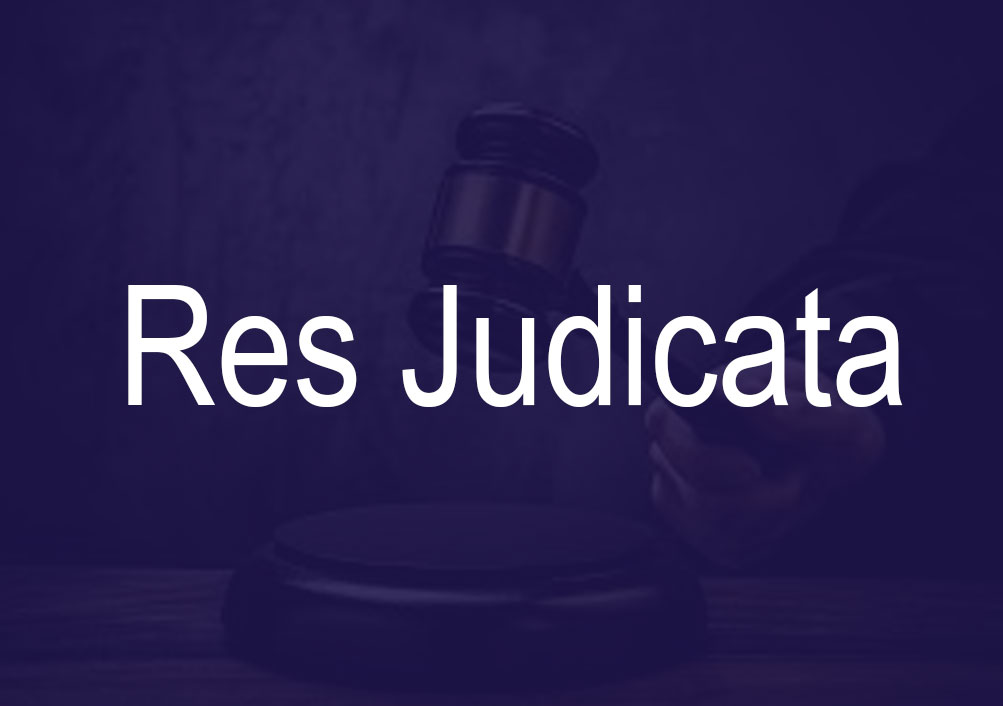Matter in former suit must be alleged by one party & either denied/admitted by other, for applying principle of res judicata: Supreme Court

Read judgment: Union of India & Anr vs. S. Narasimhulu Naidu (dead) Through Lrs. & Ors
Pankaj Bajpai
New Delhi, September 1, 2021: The Supreme Court has ruled that for res judicata to apply, the matter in the former suit must have been alleged by one party and either denied or admitted, expressly or impliedly by the other.
A Division Bench of Justice Sanjay Kishan Kaul and Justice Hemant Gupta observed that since the issue in the suit was restricted to 4971.5 sq. yards, the decree would be binding qua to that extent only and such issue cannot be said to be barred by constructive res judicata as per Explanation IV as it applies to the plaintiff in a later suit.
The Apex Court found that the issue directly and substantially involved in the first suit was to claim exclusive ownership of deceased-M. Gurunathan to the whole property left behind by deceased-Gangammal, although eviction was sought of the defendant from a particular portion of the land on which he had built a hut for residence.
On the question of title over land, the Top Court observed that since the land is transferred from the State, document of title is not required to be registered in terms of Section 17 of the Registration Act, 1908 and/or in terms of Government Grants Act, 1895.
The background of the case was that the legal heirs of deceased respondent filed an application u/s 8 of the Andhra Pradesh Land Grabbing (Prohibition) Act,1982, before the Special Court, Hyderabad alleging grabbing of their land by Central government, which was purchased by their late father from one Shaik Ahmed.
The dispute arose when the subject land was sold and a suit was filed claiming trespassing over the scheduled property by the government contractors. This suit was decreed declaring the plaintiffs as title holders of the suit property and appeal challenging the same before High Court came to be dismissed.
In the meantime, the applicants contended that they are original owners of the land in question and the Government had no right or title over the property, which came to be allowed by the Special Court, Hyderabad.
The counsel for the appellant contended that the subject matter of the first suit was only 4971.5 sq. yards which was purchased by the plaintiffs. Thus, the issue was in respect of title of the plaintiffs over the said land alone and not the entire land which was handed over to the Union by the State of Andhra Pradesh.
Opposing the same, the applicants urged that the decree in the first suit is in respect of entire property purchased by predecessor of the applicants,though the claim of plaintiffs was restricted to the land purchased by him.
It was therefore submitted by the applicant that the principle of res judicata would be applicable where the issues directly and substantially involved between the same parties in the previous and subsequent suit are same, though in the previous suit, only part of the property was involved while in the subsequent suit, the whole of the property was the subject matter.
After considering the arguments, the Division Bench noted that the requisite conditions to apply the principle of res judicata as between co-defendants are that (a) there must be conflict tof interest between the defendants concerned, (b) it must be necessary to decide this conflict in order to give the plaintiff the relief he claims, and (c) the question between the defendants must have been finally decided.
“Apart from the fact that the transfer of title in favour of the Union is complete when the possession was delivered, but even thereafter, the military land register and general land register produced by the appellants show the possession of the appellants over such land. The military land register and general land register are public documents within the meaning of Section 74 of the Indian Evidence Act, 1872 (Evidence Act) containing the records of the acts of the sovereign authority i.e., the Union as well as official body. Still further, Section 114 of the Evidence Act grants presumption of correctness being an official act having been regularly performed”, observed the Top Court.
Therefore, the Top Court opined that in the absence of any evidence to show that such records were not maintained properly, the official record containing entries of ownership and possession would carry the presumption of correctness.
In view of the transfer of land on October 10, 1956, followed by delivery of possession on Mar 19, 1958, and continuous assertion of possession thereof, it leads to the unequivocal finding that appellants are owners and in possession of the suit land, concluded the Apex Court.
Sign up for our weekly newsletter to stay up to date on our product, events featured blog, special offer and all of the exciting things that take place here at Legitquest.




Add a Comment